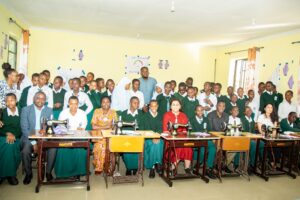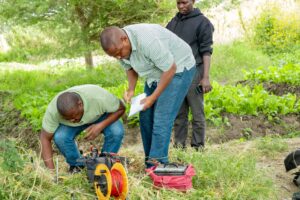How Reusable Sanitary Pads Are Keeping Girls in School
In many parts of Africa, period poverty continues to silence the dreams of countless adolescent girls. The inability to access safe and affordable menstrual products often leads to school absenteeism, embarrassment, and reduced participation in class—ultimately compromising the education and wellbeing of girls. But with reusable sanitary pads, hope is being restored.


The Impact of Period Poverty on Girls’ Education
A growing body of evidence shows that menstruation is a significant barrier to education for school-aged girls in low- and middle-income countries. One study conducted in Tanzania found that school absenteeism decreased by 7.9 percentage points when girls were provided with sanitary pads. In contrast, girls without access to safe menstrual products often miss multiple school days every month due to discomfort, stigma, and lack of privacy.
But menstruation’s effects extend beyond just attendance. Girls without menstrual support report decreased concentration, reduced participation in physical activities, and emotional distress due to fear of leaking or ridicule. These impacts are especially pronounced in communities where traditional practices and poverty limit access to hygienic menstrual care options.


Afyaplus’ Safe Pad Lab: Local Solutions to a Global Challenge
Recognizing this challenge, Afyaplus Organization launched the Safe Pad Lab—a community-driven initiative that produces reusable sanitary pads and champions Menstrual Health and Hygiene (MHH) education. These pads are affordable, eco-friendly, and designed with dignity in mind.
Through the Safe Pad Lab, Afyaplus has:
Established pad production laboratories in Iringa Region to locally manufacture reusable sanitary pads.
Trained women and girls on how to use and maintain reusable pads safely.
Conducted MHH awareness sessions in schools and communities, helping to break cultural taboos and build understanding around menstruation.
Distributed pads to vulnerable girls, especially those at risk of dropping out due to period-related absenteeism.
Why Reusable Pads Matter
Unlike disposable pads, reusable sanitary pads offer a sustainable and long-term solution to period poverty. They can last several months to years with proper care, saving families the recurring cost of monthly purchases. In the context of Afyaplus’ work, these pads have empowered schoolgirls to stay in class, participate actively, and regain confidence during their periods.
The impact isn’t just anecdotal—girls in similar programs have reported improvements in physical, emotional, and educational wellbeing, as seen in qualitative studies from Kenya. Girls noted fewer leaks, better focus in class, and the freedom to engage in sports and social activities without fear or shame.
Empowering the Future, One Pad at a Time
Afyaplus’ approach goes beyond product distribution. By training women to make the pads, the initiative also empowers local entrepreneurship, builds skills, and fosters community ownership of the menstrual health agenda.
In a world where menstruation still sidelines millions of girls, Afyaplus is changing the narrative—showing that a simple piece of cloth, stitched with care and dignity, can be the key to keeping girls in school and breaking the cycle of poverty.


Join the Movement
You can support the Safe Pad Lab project by donating, volunteering, or partnering with Afyaplus to expand menstrual health access across Tanzania. Together, let’s ensure no girl is left behind because of her period.





